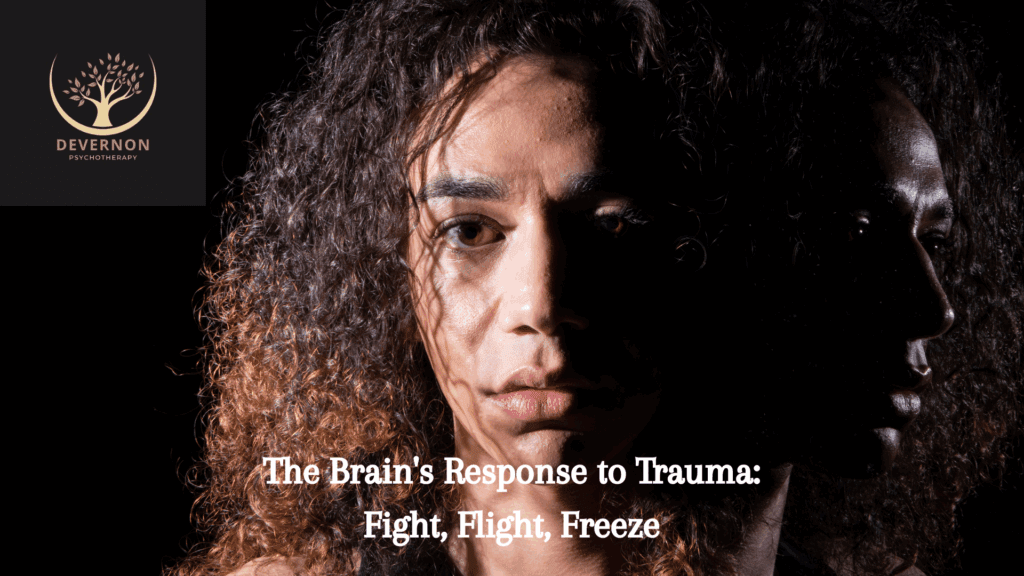Understanding Your Body’s Built-In Alarm: The Fight, Flight, Freeze Response
Have you ever found yourself in a stressful situation and felt your heart pound, your breath quicken, or perhaps you froze, unable to move or speak? These are not signs of weakness; they’re the powerful, automatic workings of your nervous system doing exactly what it’s designed to do: protect you. This is the fight, flight, or freeze response, and understanding it is a crucial step in understanding yourself and your reactions to stress and trauma.
What is the Fight, Flight, or Freeze Response?
At its core, the fight, flight, or freeze response is an evolutionary survival mechanism. When your brain perceives a threat – whether it’s a real physical danger, a stressful conversation, or a memory from the past – your body’s alarm system (the sympathetic nervous system) kicks into high gear. Adrenaline and cortisol flood your system, preparing you for immediate action.
Let’s break down each response:
- Fight: This is when your brain signals that confronting the threat is the best course of action. You might feel a surge of anger, a desire to argue, or an urge to physically push back. Your muscles tense, ready to take on the perceived danger. In daily life, this can manifest as irritability, defensiveness, or even a sudden burst of energy to tackle a problem head-on.
- Flight: If confrontation isn’t an option, your brain might decide that escape is the best way to survive. You’ll feel an overwhelming urge to flee the situation. This can show up as restlessness, anxiety, a need to avoid certain places or people, or physically leaving a situation. Your body is primed for rapid movement, pumping blood to your limbs.
- Freeze: When a threat feels overwhelming, and neither fighting nor fleeing seems possible, the body might simply shut down. This isn’t a choice; it’s an automatic survival strategy. You might feel numb, paralyzed, unable to move, speak, or even think clearly. In a traumatic event, this can literally save a life by making one appear “dead” or by conserving energy. In daily life, it might look like “zoning out,” procrastination, or feeling stuck and unable to respond in a difficult situation.
It’s Your Brain Protecting You
The most important thing to remember is that these responses are involuntary and adaptive. Your brain isn’t judging you; it’s simply trying to keep you safe based on its primal programming and past experiences. For individuals who have experienced trauma, these responses can become highly sensitised, triggering even in situations that objectively pose no danger. This is why a loud noise, a particular smell, or a stressful conversation can sometimes elicit a response disproportionate to the current situation.
Finding Compassion and Moving Forward
Understanding the fight, flight, and freeze response can bring immense relief and self-compassion. It helps us realize that our reactions are not flaws, but rather intricate protective mechanisms.
If you find yourself frequently experiencing these responses in daily life, leading to distress or impacting your relationships, exploring them further can be incredibly beneficial. Working with a therapist can help you:
- Identify Your Triggers: Understand what situations or sensations activate your specific responses.
- Regulate Your Nervous System: Learn techniques to calm your body when these responses are activated.
- Process Past Experiences: Gently explore the roots of these automatic reactions, particularly if they stem from past trauma.
- Develop New Coping Strategies: Build a wider range of responses beyond fight, flight, or freeze.
At DeVernon Psychotherapy Ltd., we believe that understanding your brain and body’s innate wisdom is a powerful step towards healing. We offer a compassionate space to explore these responses and develop strategies that empower you to live with greater calm, connection, and control.

